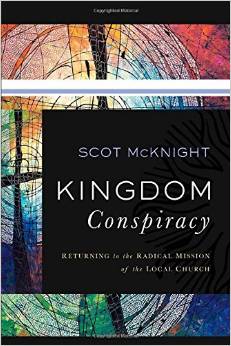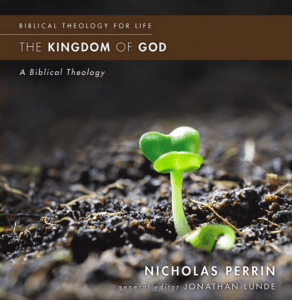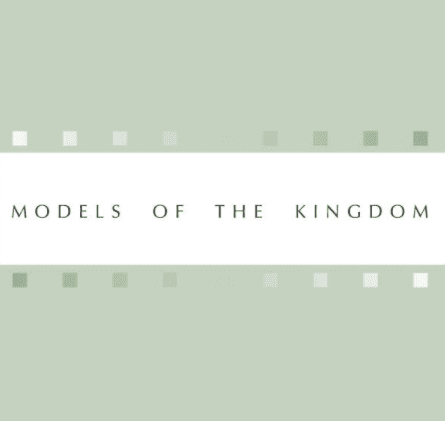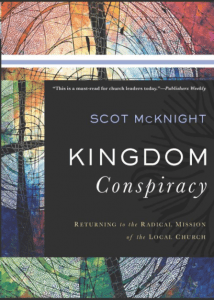 The most annoying response I have received from others about my Kingdom Conspiracy book is this one: “I see what you are saying, but I’m Kuyperian or I’m a skinny jeans person or I’m a liberation theologian or I’m Niebuhrian.” OK, each of those is located in the history of interpreting the kingdom but the issue for biblical theologians, and if I may, for the church itself, is not first about one’s interpretive tradition but what the Bible does say. And one can’t read those Old Testament texts and not see how socio-political and geo-political the term “kingdom” was in the OT. The first word to be associated with “kingdom” in the OT is “nation” or “Israel” or some geo-political people.
The most annoying response I have received from others about my Kingdom Conspiracy book is this one: “I see what you are saying, but I’m Kuyperian or I’m a skinny jeans person or I’m a liberation theologian or I’m Niebuhrian.” OK, each of those is located in the history of interpreting the kingdom but the issue for biblical theologians, and if I may, for the church itself, is not first about one’s interpretive tradition but what the Bible does say. And one can’t read those Old Testament texts and not see how socio-political and geo-political the term “kingdom” was in the OT. The first word to be associated with “kingdom” in the OT is “nation” or “Israel” or some geo-political people.
But it is also unfair to reduce kingdom to one dimension and then all but ignore other dimensions. Let me give a couple examples:
Jesus, as we read in Matthew 12:28: “But if it is by the Spirit of God that I drive out demons, then the kingdom of God has come upon you.” The temptation here is to reduce kingdom to the unleashing of God’s redemptive power. Redemptive power is clearly the import of this text but it can’t be reduced to this.
Or, read Luke 17:20-21: “Once, on being asked by the Pharisees when the kingdom of God would come, Jesus replied, “The coming of the kingdom of God is not something that can be observed, nor will people say, ‘Here it is,’ or ‘There it is,’ because the kingdom of God is in your midst.” Here the temptation is to reduce kingdom to an inner reality, and this focuses “in you” as an inner, spiritual reality. The expression more properly means “in your midst” (as in, I Jesus am here in your midst), but the reduction is often found.
Or, take Paul’s words in Romans 14:17-18: “For the kingdom of God is not a matter of eating and drinking, but of righteousness, peace and joy in the Holy Spirit, because anyone who serves Christ in this way is pleasing to God and receives human approval.” Here the temptation is to reduce the kingdom to ethics — to justice, peace and joy — and go public with them, or to colonize what is done in the public sector (justice, peace) and say “if justice is established, that’s the Spirit’s work” and therefore kingdom work.
But this would then erase from the record of history the very people or national focus of the OT and do the same in effect to a text like Revelation 1:5-6 which locates kingdom in a specific people, namely, the people of Jesus: “To him who loves us and has freed us from our sins by his blood, and has made us to be a kingdom and priests to serve his God and Father—to him be glory and power for ever and ever! Amen.” Here Revelation says “we” are “a kingdom” — and this is a perfectly parallel usage as found in both the Old Testament and throughout Josephus.
The way to avoid these reductions is to map the five elements of kingdom, which is the focus of Kingdom Conspiracy, and keep them all in play for each reference. Here are the five major elements of kingdom, though element two has two elements itself:
1. King: a kingdom has a king, and the OT king moves from God to God’s appointed ruler over Israel/Judah. In the NT this king images fluctuates between Israel’s God as king to Jesus as king.
2. Rule: for there to be a kingdom there must be a king who rules, but the God of the Bible rules in two distinctive and mutually interpenetrating ways:
2A: The king rules by ransoming, redeeming, rescuing, saving, justifying, etc. The paradigmatic royal act is for YHWH to rescue-for-liberation the people of Israel from Egypt, and this exodus act of God becomes one of the major sources for the NT concepts of salvation and redemption. The people of this king and in this king’s kingdom are redeemed people. [Many reductions ignore the redemptive element. Notice those who ignore “in the Spirit” when it comes to the ethical reduction above in Rom 14:17.]
2B. The king rules by governing the people or by being Lord over this people. The only kind of kingdom in the NT is the one where the people have surrendered to and are governed by the king (Jesus).
3. People. My thinking on “kingdom” shifted from acquiescence to the standard theory — Kingdom is the unleashing of God’s redemptive power now in anticipation of the future, final kingdom — to a more robust theory of kingdom as a result of pondering anew how the Old Testament talks about the kingdom. (A link to all the OT references to “kingdom” can be found here, and I would encourage you to scan through them to see how people-ish the term is.)
The OT emphasis is that the people is Israel and many today erase Israel and make the kingdom people the church and then ignore and erase the only story that makes sense of why Jesus and the apostles used the term “kingdom” for what has been inaugurated through Jesus in the power of the Spirit. But the NT has a strong continuity with Israel so that the church is Israel expanded and not Israel erased.
4. Law: a king rules – redeeming, governing — a people (Israel, the church) by means of a law, which is the constitution of the OT at Sinai (Torah) and which then is “fulfilled with strong continuity” in the NT in the teachings of Jesus (e.g., Matt 5:17-48) and in the ethical vision of the apostles (e.g., Gal 5–6). One cannot get this ethic without being connected redemptively to its king.
5. Land: this one is more difficult to discern, but land figures prominently in the OT as the holy Land and in the NT is either universalized to whole-world parameters or is Land expanded to see wherever God’s people dig in their roots in specific localities.
We need to work our way away from reductions to the more robust Bible’s vision of kingdom: king, rule, people, law, and land.











